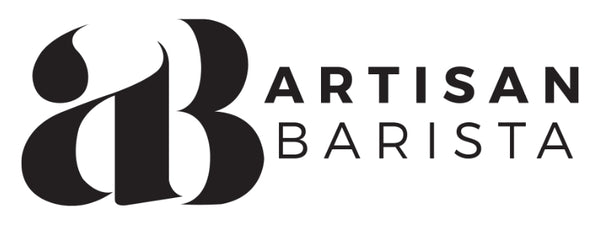
Opening a Café: Your Ultimate Checklist
Share
Are you thinking about opening your own cafe? If so, there are a number of things that you need to consider first. To help you with this process, we have created the ultimate checklist for you, to make sure that your cafe is a smash hit no matter where you decide to open it.
Please continue reading below for everything you need to know about opening your very own cafe.
Things to Consider Before Opening a Cafe
- Location (competitor analysis, stay close but not too far)
- Space (small spaces are cozy and great but have no future if you would like to expand or add new things to the cafe i.e, outdoor seating, mini roaster, bigger machines
- Finance (work out how much you will need to earn to pay yourself your own wage and still keep the business running!)
How to Open a Cafe: Step-by-Step Guide
1). Select the proper location
The first item on our checklist is a straightforward requirement—you need a place for your café! This has major significance. Locate a place that has:
- High pedestrian volume
- A prominent location near several enterprises
- Numerous additional eateries and stores
- Affordable rent each month
- The necessary electrical and plumbing infrastructure to support your shop
As long as the coffee shop is in a prime location, it's a terrific idea to take over the lease of someone that isn't doing so well, despite the fact that it could seem a little intimidating.
2). Obtain necessary licences and permits
You must register your firm with the government before continuing. Normally, this stage is not too challenging. Typically, a government representative will visit your business to look around and make sure you comply with all legal obligations to run a coffee shop. Then, after paying a fee, you'll receive a permit allowing you to run your café.

3). Establish a supplier chain
A strong supply chain is crucial when opening a cafe. To make sure your cafe is a success, you need to select what sorts of coffee you'll serve, where you'll get it, and how many different varieties you might need. A consideration will also be your budget.
You might be able to attract coffee lovers from all around the world if you can spend more on premium coffee beans however, this will make your early startup costs higher. You must also take other aspects into account.
For instance, if you want to roast your own coffee beans, you must purchase green coffee from your suppliers and provide enough time for the roasting and grinding of the beans.
4). Invest on top-notch tools
Running a coffee shop requires a lot of pricey equipment. Here is a list of some of the equipment you will require to open a coffee shop:
- Brewers of drip coffee
- Specialised coffee grinders
- French press
- Caffeine dispensers
- Freezers and refrigerators
- Insulated milk & cream flasks
- Pumps and containers for food service
- Ovens, toasters, and other cooking appliances
- Commercial blenders
- Security apparatus
- Systems for shelving and storage
- Cash registers and POS system
Although the price of this equipment can be pretty pricey, a lot of it can be obtained second hand from restaurant supply stores or on websites like Gumtree, or typically from other coffee shops that are closing down.
5). Pick the best personnel
Since cafes and coffee shops are service-based establishments, you should select your staff members based on their capacity to deliver first-rate, cordial customer service. This is an essential item on your checklist since poor customer service can ruin your company, even if your items are top-notch. Select personnel who are:
- Individuals with experience in the field and working in coffee cafes
- Amiable and extroverted
- Informed and passionate about coffee
- Dependable and prompt
Finding the ideal staff for your business can be challenging, but the effort is well worth it. Rushing things is a poor idea because the quality of your business's service will determine whether it survives or not.
6). Remember marketing and advertising
Once you've finished the first five items on our checklist, you are now prepared to open for business . You should start advertising and promoting your new coffee business right away. You may wish to consider the following:
- Giving away samples for free to onlookers
- Establishing a customer loyalty program and purchasing premium storefront signs
- Contacting regional media outlets including radio stations, newspapers, and TV stations as well as reaching out to neighbourhood food bloggers and Instagram influencers
- Announcing the grand launch of your coffee business in a press release and using social media to spread the news about it
- Offering free coffee workshops and lectures
By doing these things, you'll rapidly establish a devoted customer base as you continue to market and advertise your coffee business.
Final thoughts
These things take planning, so sit down with your business partners and draft out a business plan that suits various locations and spaces. Start small and grow as your brand and location gains trust from locals. Once you have established a name, begin to expand and add more experiences for the customer to have, such as brunch events, hire out the space at night or even have live music on weekends.
Establishing a cafe is one thing but keeping it thriving and busy is another. Start by looking at your local coffee shop, and what makes them better than the one next door.
Get Your Coffee Equipment and Tools from The Artisan Barista!
Once you are open and ready for business you will need coffee tools from a coffee specialist, so allow us to share with you our list of products that will turn any of your employees into an artisan barista. Our tools are for daily use, whether you are using specialty coffee and need to use an electric kettle or you are a high volume cafe that needs to keep their milk jugs clean by using a jug rinser.
Shop at Artisan Barista for all your commercial grade specialty coffee tools today!
